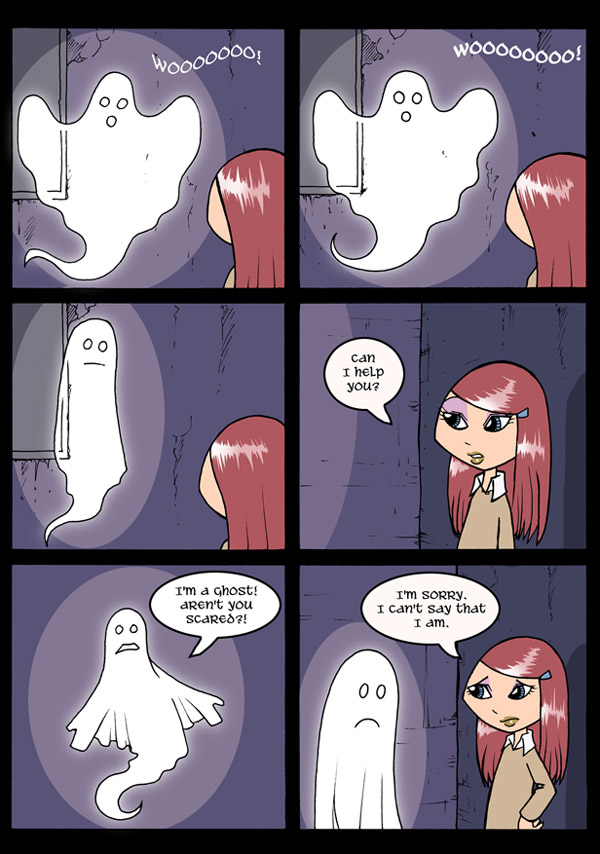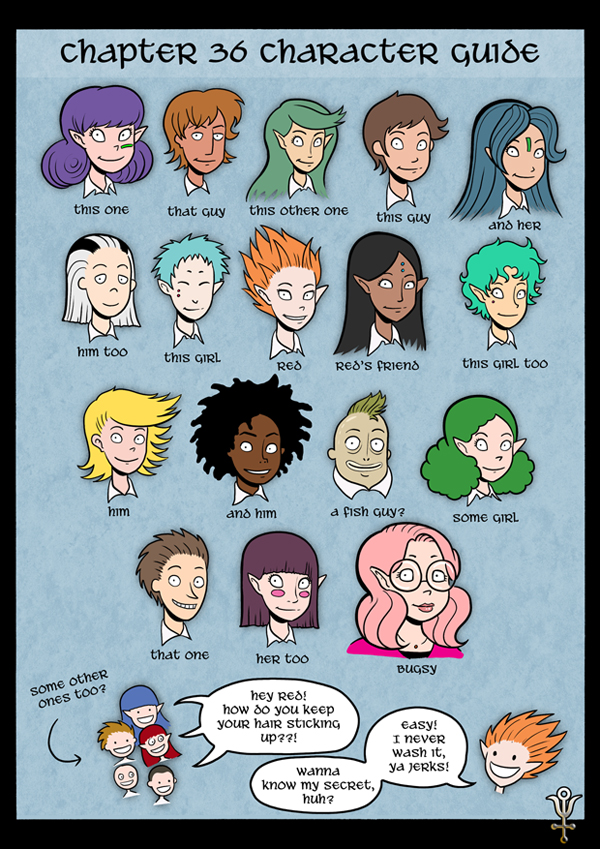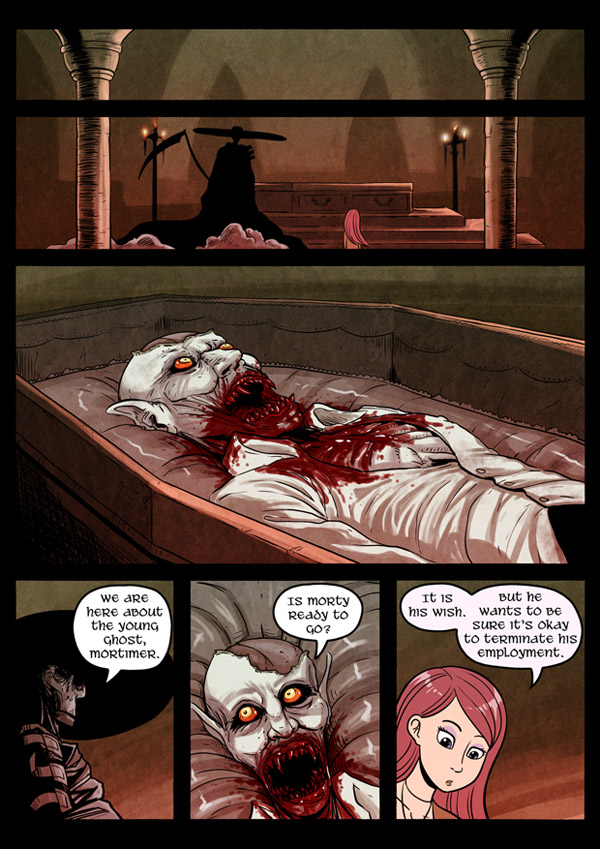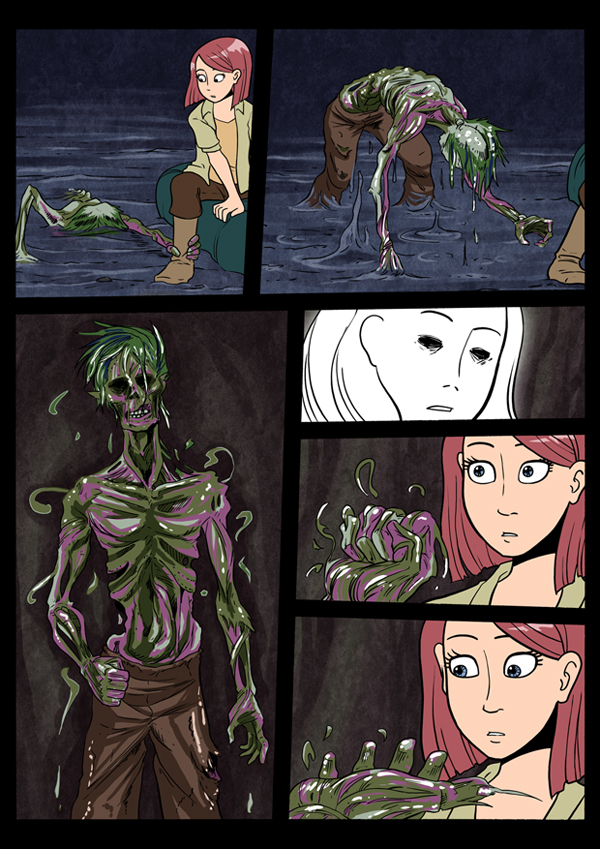Okay, I'm going to rephrase my question.
What would a person have to do at minimum to be considered abusive without doing it malicious and consciously?
"Abusive" is used to describe relationships and behavior patterns more often than people; but basically, their behavior would have to cause significant harm and be repeated somewhat regularly. Of course, "harm" is a subjective term. Is circumcising your baby abuse, even though it happens only once? Many Americans would say no; many others would say yes, but it doesn't make the parents
abusive; still others would say yes, and it
does make the parents abusive.
I'd love to know more about the things Tony's done that, in Annie's words, "make even me hate him." That would help a lot if we're trying to assess harm.
Even after being humiliated, Annie immediately
reached out by asking what she thought was a neutral question about something that's changed in her father since she last saw him. It turned out to be a fairly personal question, given that it carried the guilt of
nearly killing her and not knowing because
Tony only saw Surma. Tony was extremely defensive and shut her down, which was hurtful.
It also turned to be a fairly
dangerous question, given that the answer involved Court-forbidden research, Annie inadvertently helping Tony to mutilate himself, and Annie having absorbed Surma's very
soul. I suspect Tony was protecting her as much as himself by shutting her down. Granted, he still did it in an extremely hurtful manner.
He apologizes for Annies cheating to the Donlans, when no one requested it.
They shouldn't have to request it. Annie betrayed Kat's trust and put her academic future at risk, and that needed to be acknowledged and dealt with, so that both families could move past it. Tony's approach was tactless, but the action wasn't wrong.
I also suspect that the "apology" was partly an accusation. The Donlans were the closest thing Annie had to human family at the Court, and Anja was both girls'
academic advisor ("form teacher") all the way through Year 9. If Annie was copying Kat's work for at least a year and a half, across most of her classes, and other staff were noticing this and informing Court leadership, and somehow Anja didn't pick up on any of that? That was a pretty massive failure on her part. At most real-world schools she'd be facing some very irate parents and some very pointed questions from the headmaster.
No, she became friends with him because they were both helping
Juliette and Arthur, and they did it behind Annie's back because Arthur will be
killed if his secret gets out. J&A hadn't revealed their relationship to him yet; they barely knew her.
She was screaming at him about it over her parents' dinner table! Of course she talked to him. When has Kat ever shied away from calling someone out for bad behavior? Girl
punched a psychopomp once.
Who says Tony never apologized to Annie? They've been together for the better part of a year now, they do talk even if awkwardly, and we know Courtnie brought up the makeup issue with him.
Tom has always said he's fine with character development happening off-screen. If Tony's reconciled with Kat and Renard, he's probably done the same with Annie. I'm sure any apologies
were brief and awkward, though, and Annie probably laughed them off like she does most criticism of her dad.
Yes, after 15 more chapters of character development and a 6-month time skip, the characters' relationships have evolved a bit. This is not terribly surprising.
Saying "oh well she could have left her solitary empty room whenever she wanted" when the authority figure in her life had just stripped her of all of her friends, all of her support
If Annie perceived Tony as an authority figure, she wouldn't have lied to him about Renard from Day One. (And Tony knew she was lying, despite Annie's
legendary powers of deception, and didn't press the issue. Because it was never actually about asserting control over her.)
Nor did Tony take away any of her
human friends. Kat strolled in a couple days later with a card from the class, then Parley and Smitty visited, then he took her to see the Donlans. And she was going to school the whole time. Tony literally just changed her bedroom.
And again, she
wanted solitude, on her own terms. And she got it, on her own terms, by nesting as far inside the White Room as she could.
Good god. Watching you use Priceline must be
amazing.
On-panel, Tony never said a word about whether this room was the only one available. He simply said she couldn’t stay in the dorms. But don’t worry, whatever housing options he offered, I‘m sure he accompanied them with some sort of Nietzschean declaration of her cosmic insignificance.
What?? Annie’s not a duck, she knows how doors work. Breaking and entering for fun is how she
spent her childhood. Hell, Surma
gave her her lockpicks and
taught her how to use them, with Tony’s blessing. Annie goes where she wants, and Tony knows that.
I mean, there’s no toilet in the White Room either. Do you think she used a bucket?
Yeah, no. If I called up CPS and complained that you had moved your child and all her stuff into an
excessively large and white bedroom, I’d be lucky if all the staffer did was sigh and hang up.
Controlling
a detail of her appearance is not the same as controlling everything
up to that detail. Tony has never laid down any rules about Annie's hair or dress, so far as we know. He may never even have mentioned the makeup again until Courtnie brought it up.
In the first place, this never happened, because Annie never shed a single tear in front of Tony. Just like him, she dissociates so she won't
have to do things like cry at people.
In the second place, you
don't offer comfort to someone at the exact moment when you're pointing out their misconduct and handing out a consequence. The whole point is that they
need to know they've done something wrong. Do you think other cheaters don't cry when they're caught?
When your kid hands you her classwork right after you find her with the friend she’s been cheating off for the last year, suspicion is
appropriate. Tony let her off easy by saying "good" and just accepting it; many teachers would immediately start spot-checking her answers and asking her to explain them.
In particular, that first class session with him should NOT have happened - Annie should have been informed of her punishment earlier, by him, in private, and thus would not have been in that class at that time to be repeatedly humiliated in front of her peers in the very moment of renewing contact with her father.
Oh, definitely.
The Headmaster loves that kind of nasty stuff, though, or
his masters do.
Tony certainly did not have long to prepare for all this; he'd barely gotten used to
writing or
eating with a missing hand. He may have basically walked out of the hospital and into the classroom, with the Court arranging all the details.
Absolutely. If Annie was like "Up yours dad, you've been making me
miserable for years," she'd have my full support. She doesn't seem to feel that way, though.
Blaming Annie for the forest's reactions to things Annie does seems like a stretch. Annie is a child.
Annie is a
medium. Anticipating and managing the Forest's reactions is her actual job. If she can't do that, out of immaturity or for any other reason, she has no business visiting the Forest in the first place.
What she did was run across a bridge, then use her powers (powers she was never trained to control) on one person. How that "endangered everyone at the court" I have no idea
The bridge was explicitly forbidden to Annie as soon as she arrived at the Court.
The first time Annie sent Robot across that bridge, he came back infested with evil Forest creatures.
The first time
Annie walked across that bridge, she was attacked by said evil Forest creatures, fell into a death chasm, almost died of exposure and was attacked by a ghost. Then, after Kat rescued, Eglamore explicitly lectured her on how bad an idea that was.
Then, the leaders of the Forest showed up to lodge a formal complaint about what she'd done, during which Ysengrin tried to kill her.
THEN, Coyote carefully explained to her that he separated the Forest and the Court for a reason and that Ysengrin would exterminate humanity if he could.
Annie's a smart girl. She can put two and two together and conclude that crossing the bridge unauthorized is
very bad.
There's nothing "arbitrary" about it. The Court is often secretive, but it does everything for a reason and, in
this case, it's been very open about the reason. Don't Mess With The Forest. And nobody else
does, except Annie.
The Court is also extremely competent...when it comes to tracking down and hurting people.
So should he have just let the Court banish her? Whatever "banish" might actually mean? You don't have to like or agree with the Court to respect its power, and do what's necessary to protect your child from its wrath.
So a bunch of adults and gods are at a state of near open war and then Annie did something.
No, the Court and the Forest hadn't been anywhere near open war for, like, the last 20 years. Everything started up again because Annie sent Robot into the forest, and then everything escalated because Annie crossed the bridge herself. And that was
before "Fire Spike." And then when she came back, she continued to rack up and skip detentions, and play around with Ysengrin until Eglamore had to almost fight him to the death to save her. And then the Court passed her over for the medium position, and she promptly went to work for Coyote against the Court's wishes.
This is a pattern of behavior, and it's not a pattern the Court likes.
Mental illness means "diagnosed with an identifiable mental disorder by a mental health professional."
What? Of course it doesn't. Cynical jokes aside, psychiatrists don't
create mental illness, they
identify it. Plenty of fictional characters are obviously depressed or paranoid or psychotic or phobic without a mental health professional popping in for confirmation.
And in the real world, undiagnosed mental illness is a
well-recognized problem.Nope, it’s not that. The primary symptom of alexithymia is an inability to describe or identify one's own emotions, and Tony
does that just fine. He may not be able to show them in the moment, but he knows what he's feeling.
Tony has classic symptoms of an anxiety disorder: flat affect, depersonalization, derealization, deficits in working memory and attention, and a certain amount of selective mutism. All of these are brought on by a specific trigger, namely socializing in groups. The existence of that trigger, and the speed of his recovery when it's taken away, is what suggests an anxiety disorder over the schizophrenic or autistic spectra--but of course they can co-occur.
Beyond that, Tony has massive PTSD from Surma's death and his failed quest. In
Tom's words, he's "basically a destroyed person." And the reason
that matters is that Tony was at his absolute worst when he first returned to the Court. Since then, he's gradually been putting his life and himself back together, and his parenting skills reflect that improvement. He may still be just as awkward as when Annie was young, but he's not the bitter shell of a man that he was in "The Tree."
No, we don't. To cite one
study from 2004, 90% of American parents reported using psychological aggression with their older children in the past year--yelling, threatening spankings, etc. 50% of teenagers' parents reported using
severe psychological aggression: cursing at the child, calling them stupid or lazy, threatening to send them away or kick them out of the house, etc. And that's just the parents who
admitted to their behavior.
You don't have to be an abusive parent or guardian to have abusive moments. And that means we can't always assume that the victim of such a moment would be better off in a different household.
...Honestly, that's a more awful thing to say than anything Tony has
ever said to Annie.
Yes, mentally ill people can be charming. Mentally ill people can accomplish all kinds of amazing feats. That doesn't mean their illnesses aren't real, and it doesn't mean they don't deserve accommodation. Disabled people shouldn't have to choose between being useless and being neglected.
Tony is capable of experiencing endless pity for himself and his circumstances.
By "endless" do you mean "on
this one page?" Because he's certainly never
expressed pity for himself at any other time we've seen. Usually he either laughs off his troubles or blames himself for them.
Well yeah, he has a specific trigger. Arachnophobes can be perfectly relaxed when they're
not around spiders; that doesn't mean they're just being drama queens.
There's also no indication in the story that he
hasn't done those things. All we know is that Tony has not been able to express his feelings to Annie as clearly and naturally as they both would like. It doesn't follow that they never communicate about anything.
Why would he? He was seeing her much more frequently than Don was. And if Tony knows anything about Annie, he's noticed that she doesn't much care for
other people telling her
"He still loves you very much." Annie's personal anxieties aren't focused around lack of love anyway, they're focused around guilt and the need to be taken seriously.
You have to separate out things that Tony
can't say, or refuses to say to protect his own ego, from things that he
chooses not to say because Annie's better off not knowing, from things that he
does say but says in the quiet and largely nonverbal ways that Annie's used to.
See
this? See how Tony moves a few steps down to give Annie the psychological advantage? This is
how he says "I'm sorry, I want to be closer to you, but I know you have the reason and the right to refuse." See Annie's sparkle? She knows.




When your wife is a magical self-birthing psychic who talks to the dead for a living, it is not remotely strange to think that you might be able to talk to her after
she's dead.